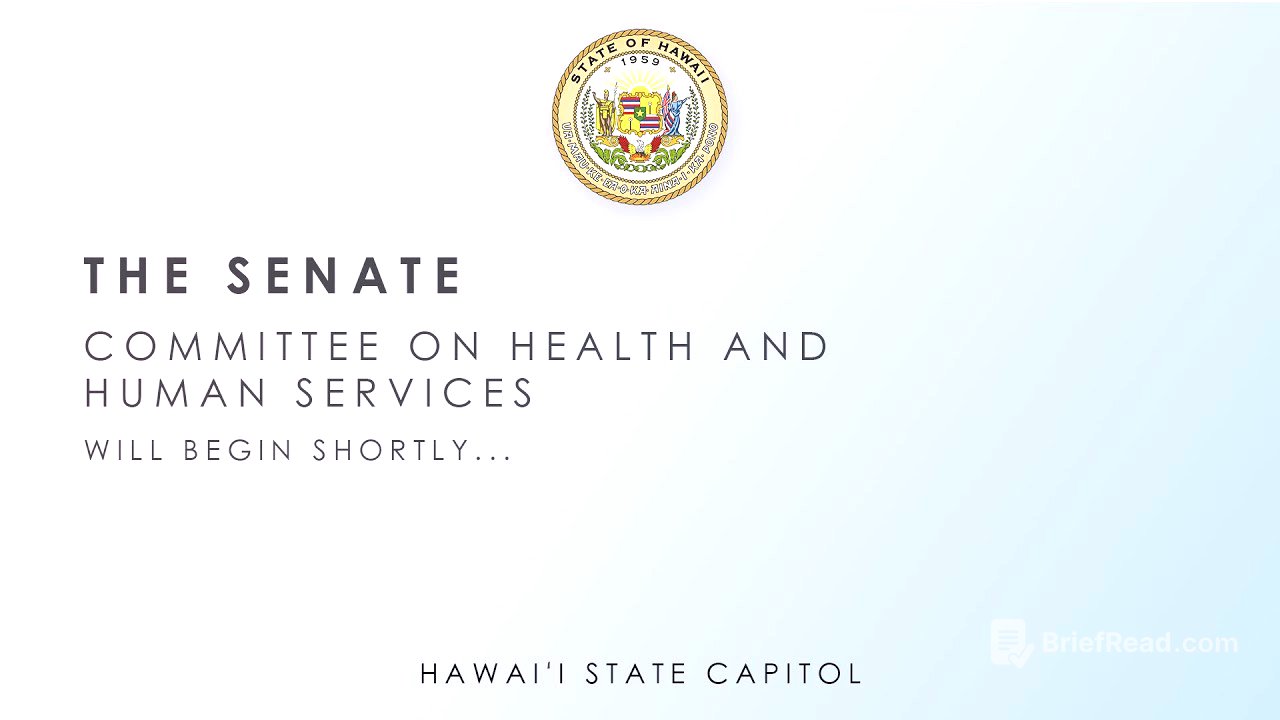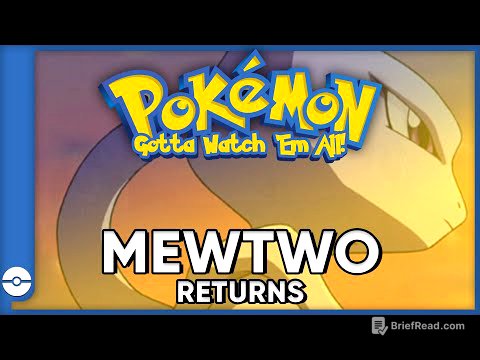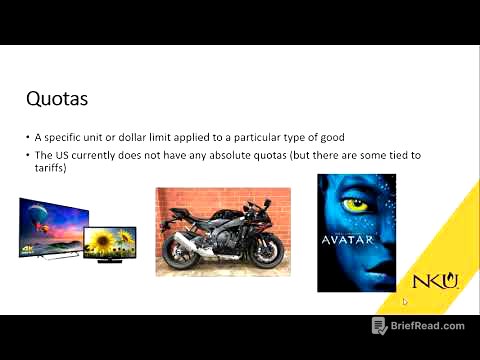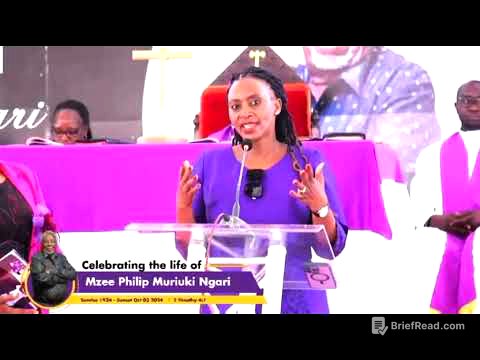TLDR;
This hearing discusses the audit of Hawai'i's deposit beverage container program, which was established in 2002 to increase recycling and reduce litter. The audit reveals consistent issues, including a lack of internal controls, reliance on self-reported data, and potential fraud. Despite legislative efforts to address these problems, the Department of Health has struggled to implement necessary changes due to understaffing and other challenges. Stakeholders discuss potential solutions, such as increasing the number of redemption centers, improving auditing processes, and exploring alternative recycling programs.
- The deposit beverage container program was established in 2002 to increase recycling and reduce litter.
- The audit reveals consistent issues, including a lack of internal controls, reliance on self-reported data, and potential fraud.
- The Department of Health has struggled to implement necessary changes due to understaffing and other challenges.
Introduction and Purpose of the Hearing [7:32]
The hearing is called to discuss the audit of the deposit beverage container program by the office of the auditor. The discussion will include the audit's recommendations and results, the Department of Health's response, and projections for the next audit. Les Condo, the state auditor, will present the findings.
State Auditor's Presentation: Overview of the Program [8:32]
Les Condo explains that the audit assesses the implementation of prior recommendations rather than introducing new ones. The program, established in 2002, aims to increase recycling and reduce litter. The statute mandates audits of the program and its special fund every two years. The special fund holds fees, deposits, and accrued interest used for refunds and program fees. The program operates through a deposit collection process and a redemption process. Distributors deposit 5 cents plus a 1 cent handling fee into the special fund, which is then recovered from retailers and consumers. Consumers receive refunds at redemption centers, which are then reimbursed by the department. In 2020, there were 67 redemption centers across the state.
Findings of the Audit: Consistent Issues and Lack of Oversight [12:50]
The audit findings have been consistent across multiple reports, indicating that the program lacks structure and internal controls. It relies on self-reported numbers without verification, operating as an honor system. The department cannot verify distributor payments or redemption center claims. A 2012 audit highlighted the risk of fraudulent or erroneous underreporting by distributors. In one instance, Whole Foods was found to be underpaying into the program, leading to a settlement with the state. Secret shopper exercises revealed fraud at redemption centers, with one center, Reynolds Recycling, adding false weight to reimbursement requests. The department referred the issue to the attorney general, but no action was taken due to the limited number of instances.
Department's Challenges and Recommendations [19:34]
The 2020 audit examined why the department was not addressing the program's issues, finding that the department claimed understaffing as the primary reason. The auditor noted that the law allows the program to use funds to hire staff or a third party to administer the program. Recommendations were made to establish internal controls, develop procedures, audit distributor and redemption center reports, and retain a third party to administer the program. In 2022, some of these recommendations were codified, requiring the department to develop a risk-based process for auditing reports and allowing the hiring of personnel or consultants. Distributors were required to submit internal control processes and independent audits, although the latter requirement was temporarily suspended by the governor due to cost concerns. The 2024 report found no progress in implementing the recommendations, a finding disputed by the department.
Comparison with Other Jurisdictions and Future Audits [26:05]
Hawaii and California are the only states that run similar deposit beverage recycling programs at the state level. California has a much larger staff dedicated to its program. Other programs are run by private organizations, which may allow distributors to keep a portion of unredeemed deposits. The auditor suggests the committee consider alternative models for the program. Another audit is scheduled in about a year to assess the department's progress.
Senator's Concerns and Opening Statement [28:30]
The senator expresses concern that there has been little progress in the program over the past decade, despite multiple audits. The senator believes the program should reduce littering and promote recycling, but the state has lost a glass recycler. The senator intends to ask the Department of Health questions and wants them to respond to the audit.
Department of Health's Response and Program Objectives [30:00]
Kathleen Hoe, the deputy director for environmental health, acknowledges the longstanding challenges in implementing the deposit beverage container program. She assures that the department is committed to addressing these challenges and is actively working to get the program back on track. Lane Otsu, the solid waste management coordinator, presents the program's objectives, which include increasing program participation and recycling rates, strengthening the connection between manufacturing decisions and recycling program management, and improving transparency and accountability.
Department of Health's Efforts to Address Recommendations [32:28]
The Department of Health is working to implement the auditor's recommendations and feels that they are making progress. They have grouped activities by similar traits and noted which recommendations these tasks address. The department is also planning on retaining third-party services to help administer certain functions. The accounting and inspection enforcement manuals have been edited and are in the final review process. These manuals are being used for new employee orientation and as a reference for existing staff.
Audit and Process Improvement Initiatives [35:49]
The Department of Health is working to implement audit and process controls, including conducting risk-based audits as required by HRS 342G-121.5. They are finalizing an RFP to enlist accounting, audit, and compliance services for both certified redemption centers and beverage distributors. The department also plans to engage a contractor to improve their own financial control processes and procedures. Internal control process (ICP) documents are required of beverage distributors, and the department has received about 200 of these documents. The department is also working on a legislative proposal for a long-term fix to the audit requirement, which includes identifying three tiers of distributors with varying audit responsibilities.
Electronic Reporting System and Additional Activities [41:15]
The department has established an online tracking system with database and mapping capabilities. An inspection module has undergone field testing, and the department plans to build out an electronic reporting system for distributors and certified recycling centers (redemption centers). The department is also analyzing the segregated rate and handling fee rate. A handling fee study is required annually to evaluate whether the program needs to change the handling fee paid to redemption centers. The reorganization of the solid and hazardous waste branch will increase resources for planning and enforcement. The department is also working to make recycling more convenient by increasing the number of certified redemption centers.
Legislator's Questions and Concerns [47:08]
Senator Fabella expresses concerns about the lack of digitization and computerization in the program, which leads to inaccuracies and potential fraud at redemption centers. He shares a personal anecdote about his wife's experience working at a redemption center where employees manipulated the numbers for personal gain. He questions how the program can protect taxpayers and suggests that computerization could improve accuracy. Senator questions how much dedicated staff the program has. The response is none. Senator questions why it took so long to determine the need for reorganization.
Discussion on Program Staffing and Funding [51:11]
The Department of Health acknowledges that there are no dedicated staff solely for the deposit beverage container program. The Office of Solid Waste Management has 15 people who handle various recycling programs and solid waste planning activities. The department is undergoing a reorganization to dedicate a section to planning activities, allowing the Office of Solid Waste Management to focus on recycling programs. The department acknowledges the need for more staff and is looking to use the special dedicated fund to get that staff. The department currently has five vacancies and is working to establish and fill unestablished positions after the reorganization is completed.
Concerns About Redemption Rates and Program Effectiveness [55:45]
The senator expresses frustration that consumers are paying six cents per can without knowing if they will get it back, and redemption rates have gone down. The senator notes that other states have vending machine-type redemption systems that make it easier for consumers to redeem their containers. The senator suggests that the department consider incentivizing stores to have these machines. The department responds that other states are also having trouble with redemption rates. The department is putting out an RFP for auditing services to address concerns about activities at redemption centers.
Discussion on Fraud and Enforcement [59:39]
The senator notes that when the auditor finds fraud, the attorney general does not take action. The senator suggests that this should be a red flag and that the retailer should be watched more carefully. The senator hopes that the internal audit will help audit both distributors and redemption centers. The senator suggests that redemption centers are more fluid and easier to manipulate than retailers. The department is asking for an increase in their ceiling so that they can do more contracting to assist in the program.
Alternative Redemption Methods and Special Fund Usage [1:02:47]
The senator asks if the department has considered vending machine-type redemption systems to make it easier for consumers to redeem their containers. The senator suggests giving stores more of an incentive to have these machines. The senator also notes that the Office of Solid Waste Management has to assist in trying to find spots for people to redeem their bottles and cans. The senator questions why the department has not tapped into the $70 million special fund.
Testimony from Maui Brewing Company [1:05:39]
Garrett Morero, the CEO and co-founder of Maui Brewing, shares his perspective as a beverage manufacturer and retailer. He expresses that the deposit beverage program does not work. He notes that he is going to get hit with an audit for $15,000 to $20,000 per location, while his smallest location only pays about $48 in fees a year. He believes this is an unintended consequence of the legislation, not an intentional hurting of small business. He suggests that the Whole Foods example was an issue of lack of education and guidance from the department, not actual criminal fraud. He sees the fraud occurring more on the redemption center side than on the manufacturing and wholesale side.
Concerns About the Audit Requirement and Digital System [1:09:27]
Morero expresses concerns about the digital system, stating that it should be simple and use the standard government system. He also expresses concerns about the audit requirement, stating that it will subject small businesses to enormous costs with no benefit to the state. He notes that the department could not provide specific control points or a standardized format for the audits. He also states that the program was rolled out in haste and that the department started communicating about the third-party audit because of the failure of previous audits. He feels that it is a rush and not fully fleshed out.
Recommendations and Closing Remarks [1:13:56]
Morero suggests that the state should step back and look at the program from a 30,000-foot view. He suggests exploring new technology to sort trash and finding better uses for glass bottles. He cautions that increasing the deposit is an incentive to increase the fraud. He offers to be part of a solution and hopes the department takes his comments to craft a better program.
Questions for Maui Brewing Company and Auditor's Recommendations [1:17:48]
The senator asks Morero if he keeps a portion of the six cents per can or bottle. Morero responds that he does not keep any of the handling fee. The senator asks Les Condo if it is his recommendation that the department use the special fund to conduct the audits instead of the distributors having to do it. Condo responds that it is not a good use of his office's resources to audit the program every other year. He suggests that the department develop a risk-based assessment process to determine where to look. He also suggests that the department modify the statute to address the concerns that Maui Brewing expressed.
Department of Health's Closing Statement and Future Plans [1:24:30]
Deputy Director Ho is asked to give a closing statement. The department maintains a sizable balance in the fund to enter into contracts and issue POs to the redemption centers. They are estimating that for FY26, they are looking at about a $64 million estimate. They are asking for a ceiling increase for FY27 because of the uncertainty with the segregated rate and handling fee study. The senator expresses concern that the special fund grows every year while redemption rates are going down. The senator states that the legislature needs to seriously look at whether or not there are better recycling programs. The hearing is adjourned.


![[홍장원의 불앤베어] 금융위기 직전으로 내려간 신용스프레드. 두달만에 일자리 26만개가 날아갔다. 골드만삭스 "여전히 주식 매우 저평가"](https://wm-img.halpindev.com/p-briefread_c-10_b-10/urlb/aHR0cDovL2ltZy55b3V0dWJlLmNvbS92aS9udmhmSmcxcUxzTS9ocWRlZmF1bHQuanBn.jpg)






